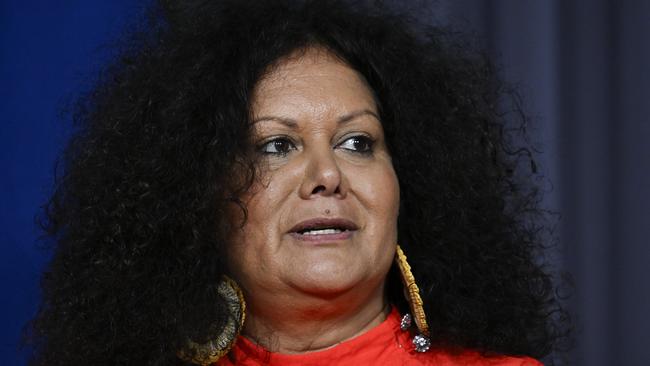Indigenous-owned firms to get bigger slice of the contracts pie
Companies controlled and majority owned by Aboriginal and Torres Strait Islander people will be awarded more commonwealth contracts in an expanded Indigenous procurement policy.

Companies controlled and majority owned by Aboriginal and Torres Strait Islander people will be awarded more commonwealth contracts in an expanded Indigenous procurement policy.
The Albanese government announced on Thursday that its push to lift the economic standing of Indigenous Australians will now include incremental increases in the percentage of commonwealth contracts with Indigenous-controlled companies from 2.5 per cent to 4 per cent by 2030. The Australian Bureau of Statistics found 3.8 per cent of the Australian population identified as Aboriginal or Torres Strait Islander or both at the last census in 2021.
Amid persistent claims the policy was being rorted by unscrupulous operators who were “black cladding” their companies, Indigenous Australians Minister Malarndirri McCarthy consulted Indigenous and non-Indigenous companies and business groups. Changes under way would make it easier for whistleblowers to report “black cladding” and the government has been working with regulators to make it simpler to prosecute offenders.
Senator McCarthy has also introduced a requirement that eligible companies must be 51 per cent owned and controlled by Indigenous people. Until now, a company was recognised as Indigenous if it was 50 per cent owned by an Indigenous Australian.
She told The Australian this month that her focus in Indigenous affairs was “jobs, jobs. jobs”. She is overhauling the failed work-for-the-dole scheme to remote communities, rolling out 3000 new jobs with real wages in remote areas and has given Indigenous Business Australia unprecedented powers to help Aboriginal communities bring investors and private enterprise onto their lands as commercial partners or tenants.
Aboriginal entrepreneur Warren Mundine, who was Tony Abbott’s top Indigenous adviser when the commonwealth’s Indigenous Procurement Policy was crafted, told The Australian on Thursday that he continued to support the scheme and its aims.
Mr Mundine said Senator McCarthy’s changes to stamp out black cladding were warranted. He said it was reasonable that a government would tweak the policy after a decade, once issues became apparent. “To be quite honest it was a lot more successful than we every thought it would be,” he said.
“We thought the policy might generate a couple of hundred thousand dollars in work a year for Indigenous contractors but before we knew it, the total had gone past a billion.
“Then the states and territories started looking at doing their own Indigenous procurement and the corporates have taken it up in a big way.
“You have got this incredible business environment created here, and these are companies that employ a lot of Indigenous people.
“I’ve always said the economy was the answer … this is the kind of policy that could take a generation to show what it’s done.”
The reforms follow consultations carried out last year and are part of the Albanese government’s ongoing work towards the economic empowerment of First Nations people and communities.




To join the conversation, please log in. Don't have an account? Register
Join the conversation, you are commenting as Logout